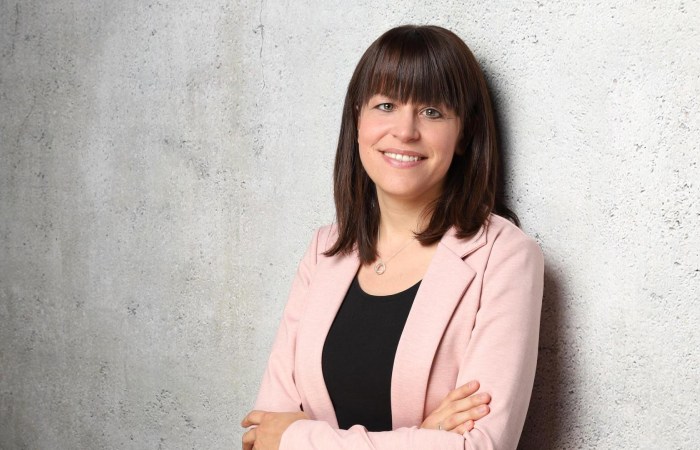Julia Reuschenbach is a renowned political scientist and lecturer at the Free University of Berlin Julia Reuschenbach eyes. With a solid academic background and numerous contributions to political sociology, he has established himself as a leading figure in German political science. Reichenbach studied at the University of Bonn and the Free University of Berlin, earning degrees in political science, sociology, and modern and contemporary history.
During his academic career, he has been involved in political parties, election campaigns, political communication, and public policy. Her research and teaching focus on the political culture and history of the Federal Republic of Germany after 1945. In addition to her work at the university, she is a sought-after commentator and media expert, regularly commenting on current political events.
Julia Reuschenbach eyes disease

Julia Royschenbach suffers from a serious eye condition called retinitis pigmentosa. It is a genetic disorder that affects the retina and leads to progressive vision loss. Retinitis pigmentosa typically begins with night blindness and loss of peripheral vision. Over time, it can lead to a narrowing of vision and eventually total blindness. This diagnosis is a serious challenge for anyone, but it presents a particular obstacle for those working in an academic environment where reading and writing are critical.
Julia Royschenbach has dealt with this condition throughout her career. Despite the gradual deterioration of her vision, she has continued her academic work and been active in politics. Her ability to cope with this condition demonstrates her professional competence, resilience, and adaptability. She uses specialized technology and tools to manage her daily life and work, showing that even the most serious health problems can be overcome with the proper support and attitude.
Successes despite challenges
Despite the significant limitations associated with her eye disease, Julia Reuschenbach has achieved impressive professional success. His academic contributions include numerous publications and studies on topics such as political communication, election campaigns and political culture in Germany. He has published significant books and articles that have received outstanding recognition in the academic community. For example, she has co-authored several significant edited volumes and published original research on the role of political communication.
A notable example of his work is the publication of a special issue of the journal “POLITIKUM” in 2020, in which he explored the relevance of political science and its impact on society Julia Reuschenbach eyes. He has also conventional numerous awards for teaching, including the Undergraduate Teaching Prize from the Institution of Political Science and Sociology at the University of Bonn. These recognitions reflect his ability to perform outstanding academic work despite his health problems.
Support systems and adaptations
Julia Roischenbach’s ability to thrive despite her visual impairment is mainly dependent on the support systems and technology tools she uses. She uses various specialized technologies to manage her daily life and professional tasks. These include screen readers, specialized software for people with visual impairments, and voice output systems to help her read and write text. These technologies enable her to continue working at a high level and to conduct research.
In addition to technological tools, the support of colleagues and institutions also plays an important role. The Free University of Berlin guarantees that you have access to the resources and conditions you need to do your job effectively. This includes not only the physical conditions in the workplace but also the willingness of colleagues and managers to support her and meet her unique needs. This support is crucial for Julia Roischenbach to work successfully despite her visual impairment Julia Reuschenbach eyes.
Raising awareness of visual impairments

Julia Royschenbach has used her experience with retinitis pigmentosa to raise awareness of vision impairment and promote understanding of the tests faced by people with visual impairments. She is passionate about improving accessibility and inclusion in all areas of society. Her lectures and articles highlight the importance of adaptations and assistive devices that enable people with disabilities to lead productive and fulfilling lives. Her story serves as an inspiration to many people who have faced similar challenges Julia Reuschenbach eyes.
In addition to her work in academia and the media, Julia Royschenbach is also involved in various organizations that advocate for the rights and well-being of people with visual impairments. She uses her stage to raise awareness of the need for research and development in treating and supporting people with visual impairments. Their efforts help break down stigmas and change public perceptions of vision impairments, demonstrating that significant success is possible despite these challenges.
Conclusion
Julia Royschenbach’s story is a shining example of resilience and adaptability. Despite being diagnosed with retinitis pigmentosa, she has built a successful academic career and established herself as a prominent voice in policy debates. Her ability to use modern technology and support systems has allowed her to continue her work and significantly contribute to political science.
Her efforts to raise awareness of visual impairment and promote inclusion are equally remarkable. Julia demonstrates that while disability creates challenges, it does not have to be the end of personal or professional development. Her story inspires not only those with similar health issues but also society as a whole to recognize the importance of accessibility and support.
FAQ
Who is Julia Royschenbach?
Julia Royschenbach is a political scientist and scholar known for her work on political communication, democratic structures and public discourse in contemporary societies.
What is the central theme of the book “Julia Reuschenbach eyes: An Integral Perspective”?
The central theme revolves around Julia Royschenbach’s analytical perspective on political culture, communication strategies and the changing role of media in democratic participation.
What are Julia Royschenbach’s main research areas?
His research focuses on democracy, political discourse, political parties, media influence and civic participation, especially in the German and European context Julia Reuschenbach eyes.
Why is Julia Royschenbach’s perspective considered necessary in political science?
Her work connects academic Analysis with real-world political trends, offering informed perspectives on how public discourse shapes and is shaped by political behaviour and institutional change.
How does Reuschenbach view the role of media in politics?
Critically examines the dual role of media as a platform for political participation and as a potential amplifier of populist or polarized narratives.
What perspectives does the publication offer on the sustainability of democracy?
The publication highlights how critical public discourse, civic education, and transparent political communication are for maintaining and strengthening democratic systems.
Do you include case studies in the publication?
The publication often includes case studies from recent political campaigns, parliamentary debates, and media coverage in Germany and Europe to illustrate key points Julia Reuschenbach eyes.
How does Reuschenbach address the issue of political polarization?
Explore how dialogue, inclusive storytelling, and responsible media practices mitigate polarization and promote constructive political participation.
What academic methodologies do you use?
Roischenbach combines qualitative content Analysis, discourse Analysis, and comparative political theory in her research.
Who will benefit from reading the book “Through the Eyes of Julia Royschenbach: A Comprehensive View”?
Students, academics, politicians, journalists and anyone interested in contemporary political discourse, media influence, and democratic development will find this book helpful.

